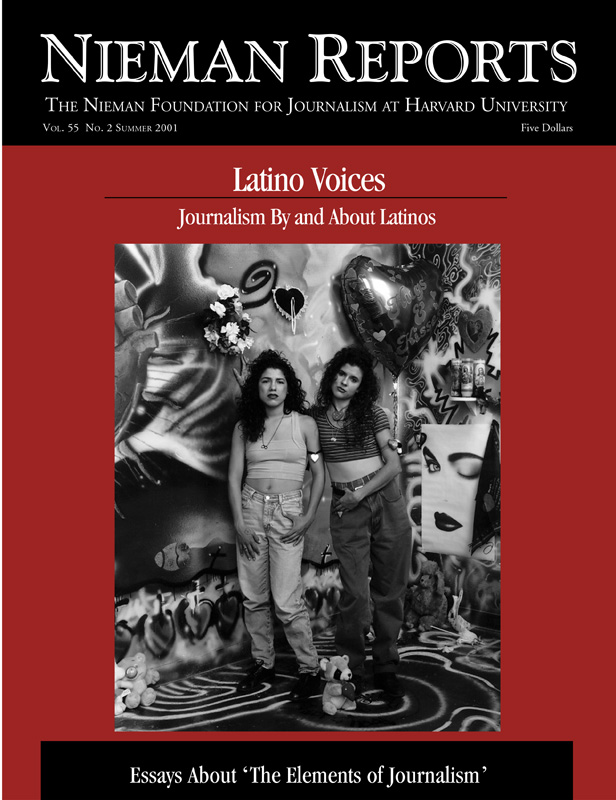"On this there is absolute unanimity and also utter confusion: Everyone agrees journalists must tell the truth. Yet people are fuddled about what “the truth” means….
This desire that information be truthful is elemental. Since news is the material that people use to learn and think about the world beyond themselves, the most important quality is that it be useable and reliable.…
Truth, it seems, is too complicated for us to pursue. Or perhaps it doesn’t exist, since we are all subjective individuals. There are interesting arguments, maybe, on some philosophical level, even valid.…
So what does a journalist’s obligation to the truth mean? …journalists themselves have never been very clear about what they mean by truthfulness. Journalism by nature is reactive and practical rather than philosophical and introspective. The serious literature by journalists thinking through such issues is not rich, and what little there is, most journalists have not read.… Rather than defend our techniques and methods for finding truth, journalists have tended to deny they exist.
Whether it is secrecy or inability, the failure by journalists to articulate what they do leaves citizens all the more suspicious that the press is either deluding itself or hiding something.
This is one reason why the discussion of objectivity has become such a trap. The term has become so misunderstood and battered, it mostly gets the discussion off track. …originally it was not the journalist who was imagined to be objective. It was his method. Today, however, in part because journalists have failed to articulate what they are doing, our contemporary understanding of this idea is mostly a muddle.…
[T]his “journalistic truth”… is also more than mere accuracy. It is a sorting-out process that develops between the initial story and the interaction among the public, newsmakers, and journalists over time. This first principle of journalism—its disinterested pursuit of truth—is ultimately what sets it apart from all other forms of communications….It is actually more helpful, and more realistic, to understand journalistic truth as a process—or continuing journey toward understanding—which begins with the first-day stories and builds over time.… The truth here, in other words, is a complicated and sometimes contradictory phenomenon, but seen as a process over time, journalism can get at it. It attempts to get at the truth in a confused world by stripping information first of any attached misinformation, disinformation, or self-promoting information and then letting the community react, and the sorting-out process ensue. The search for truth becomes a conversation.
Rather than rushing to add context and interpretation, the press needs to concentrate on synthesis and verification."


